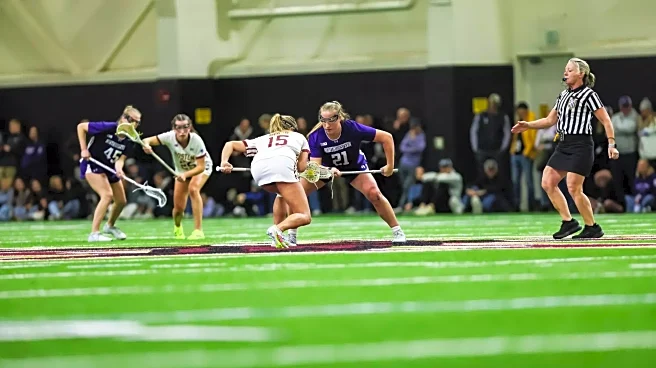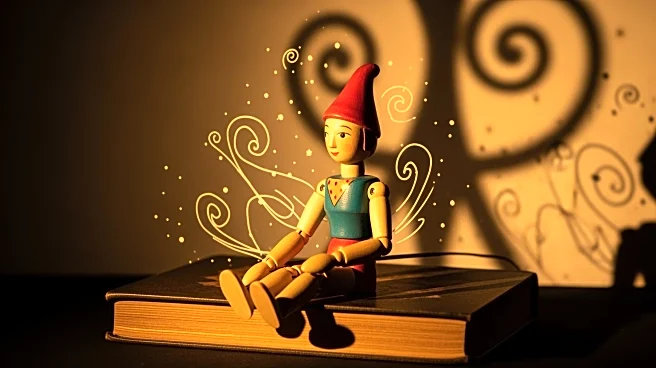What is the story about?
What's Happening?
Design students from ArtCenter College's Resilient Futures Lab have developed innovative concepts for rebuilding communities affected by the Eaton fire in Altadena, Los Angeles. The 14-week summer studio focused on creating fire-resilient structures that are both sustainable and meaningful. Led by James Meraz and Emil Mertzel, the course encouraged students to design off-the-grid dwellings using noncombustible materials and green strategies. The students were tasked with considering the personal stories and needs of those affected by the fires, aiming to create spaces that foster healing and regeneration. Their designs include multigenerational housing, cooperative complexes, and artist live/work spaces, showcasing a blend of technical robustness and personal connection.
Why It's Important?
The innovative rebuilding ideas proposed by ArtCenter College students highlight the importance of integrating sustainability and personal narratives in post-disaster reconstruction. These designs offer potential solutions for communities facing similar challenges, emphasizing resilience against future fires and earthquakes. By focusing on the human aspect of rebuilding, the students' work underscores the role of architecture in healing and community regeneration. This approach could influence future urban planning and disaster recovery efforts, promoting a shift towards more personalized and sustainable building practices.
What's Next?
The Resilient Futures Lab will continue its work in the fall, allowing students to further develop their designs and explore the social impact of architecture. As the U.S. Army Corps of Engineers completes cleanup efforts in the affected areas, these innovative concepts may inspire local rebuilding initiatives. Stakeholders, including community leaders and urban planners, might consider these student projects as viable options for reconstruction, potentially leading to collaborations that integrate these ideas into real-world applications.
Beyond the Headlines
The emphasis on personal stories and community connections in the students' designs reflects a broader cultural shift towards valuing individual experiences in architectural practices. This approach challenges traditional notions of post-disaster rebuilding, advocating for spaces that not only meet technical requirements but also nurture emotional and social well-being. The projects demonstrate how architecture can serve as a tool for storytelling and healing, potentially influencing future design philosophies and educational curricula.















